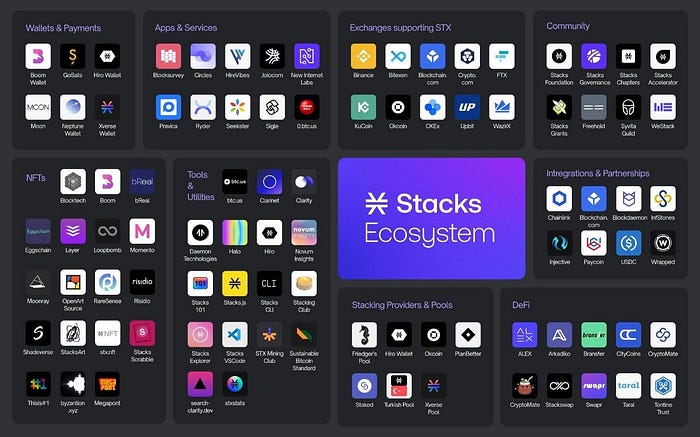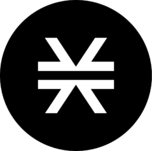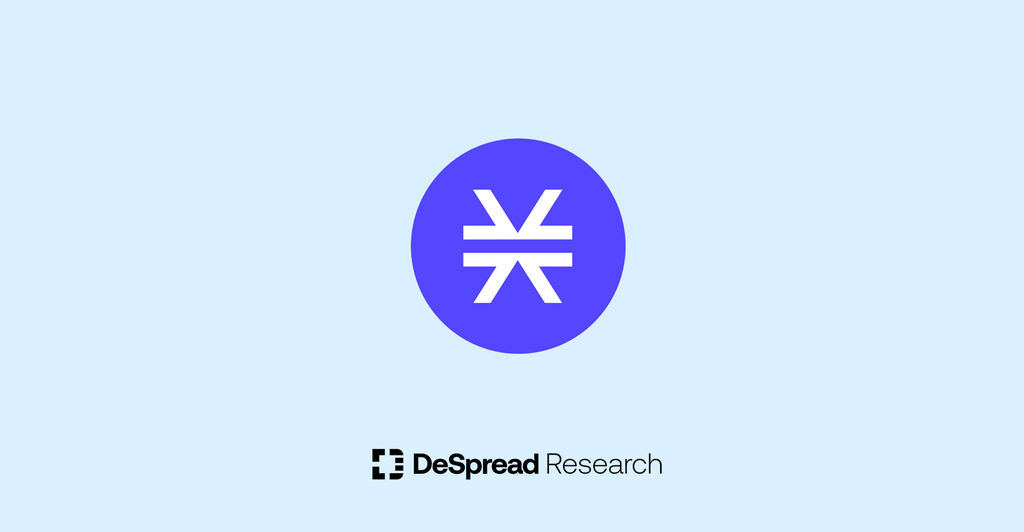
Stacks — Delving into the User-Owned Internet, Stacks Ecosystem
Delving into the User-Owned Internet, Stacks Ecosystem

1. Introduction
Stacks (formerly known as Blockstack) is an open-source blockchain network that enables smart contracts and application functionality on the most decentralized blockchain, Bitcoin. Stacks seeks to build a truly user-owned internet by taking Bitcoin beyond a simple store of value.
“We want an internet that is open. We want it to be transparent. We want an inter that is fair. For that, I’m proposing two requirements. One, there can be no middle man. Two, users have to own their data.” — Muneeb Ali, Co-Founder of Stacks & CEO of Hiro Systems
Stacks was the first to introduce the concept of Proof of Transfer (PoX), a new mining protocol that participates in the block creation process and issues new cryptocurrencies by transferring or using existing cryptocurrencies.

Through the PoX consensus mechanism, Stacks is closely linked to Bitcoin and all transactions made on Stacks are settled in Bitcoin. In this process, Stacks leverages the superior security of Bitcoin, and Stacks-based apps can interact directly with Bitcoin.
In addition to miners participating in the consensus process by sending (using) Bitcoins, STX token holders can participate in the PoX process through stacking, thereby obtaining pure Bitcoins used in the mining process.
Moreover, Clarity programming language provides smart contracts to Bitcoin. Unlike the existing Solidity, it does not require compilation and is not Turing-complete.
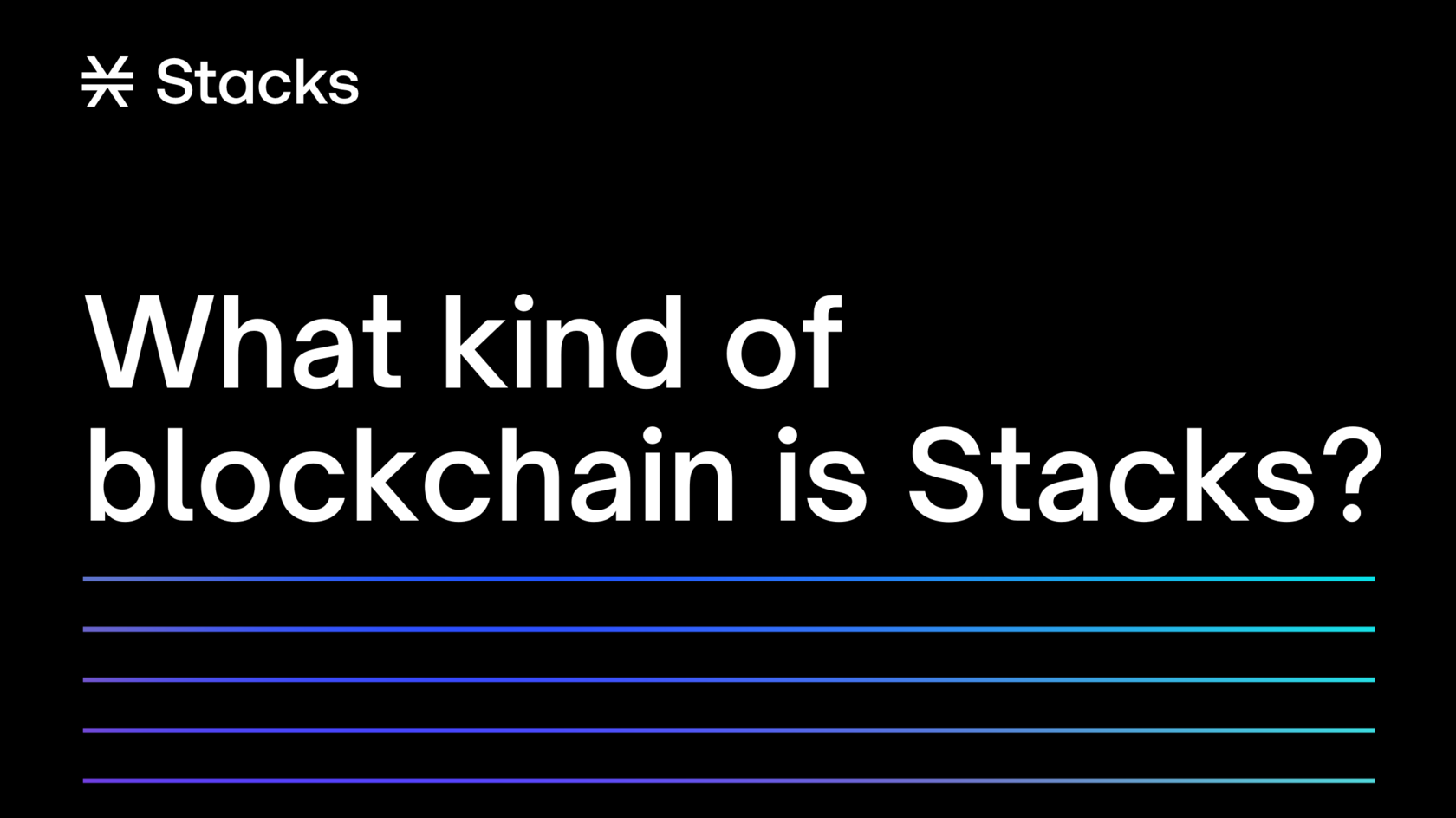
In other words, by leveraging the huge capital and security of Bitcoin, Stacks intends to build various use cases on Bitcoin, and ultimately grow with the Bitcoin ecosystem.
2. Catamaran Trustless Swap for Bitcoin DeFi
The developers of the Stacks community have come together to deploy Catamaran Trustless Swaps, a Bitcoin swap that can trigger actions on a Stacks-based smart contract with unique visibility into the state of Bitcoin. It is powered by pure Bitcoin transactions and can confirm the potential for Bitcoin DeFi applications to be active through Stacks in the future.
Currently, the Catamaran swap is in an early stage of development, and there are some technical limitations in the Stacks 2.0 version. Improvements will be provided with the upcoming Stacks 2.1 version.

3. First Wrapped Bitcoin Based on Stacks, xBTC
Wrapped.com offers Bitcoin (xBTC) wrapped on Stacks, in collaboration with Tokensoft, Anchorage and cryptocurrency wrapping experts.
With xBTC, developers will be able to leverage the security of Bitcoin with Stacks’ universal smart contracts, and will be able to quickly and easily build decentralized financial applications for the Bitcoin ecosystem.
In addition, xBTC can reflect the purity of Bitcoin in that it utilizes the security of Bitcoin through Stacks, unlike wrapping Bitcoin assets on other chains.
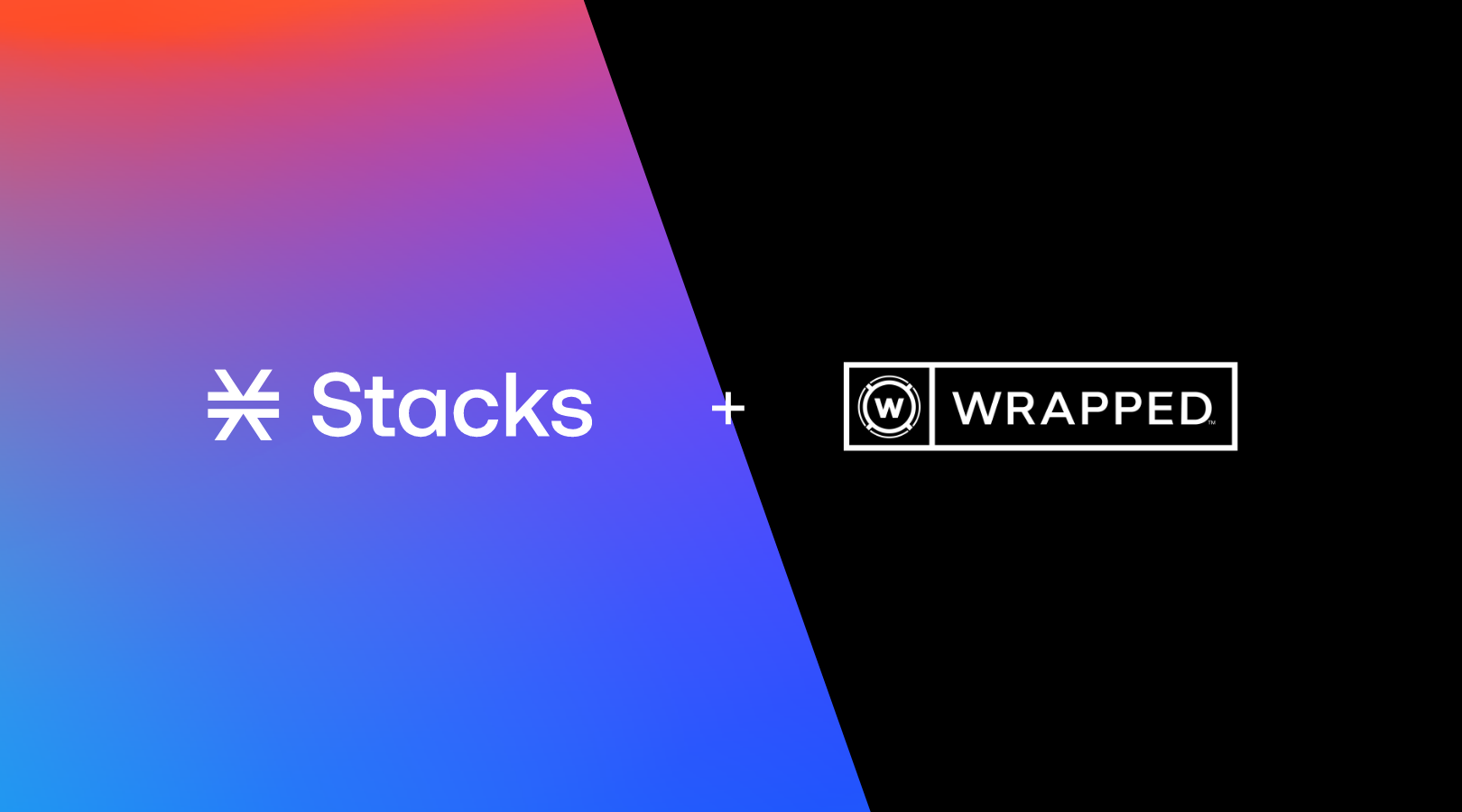
4. Stablecoin
Ahead of the news that the Centré Consortium will support a Stacks-based USDC stablecoin, a Stacks-backed asset-backed stablecoin USDA was launched this fall.
In the future, the introduction of various stablecoins in the Stacks on-chain ecosystem will provide users with the market stability and deep liquidity.

5. Bitcoin NFT
As the world becomes highly digitalized, the importance of digital communities is on the surface. In particular, the crypto community is creating a place to store their own unique distribution and culture through NFT.
Stacks created the Bitcoin NFT culture with smart contracts for Bitcoin. Bitcoin NFT contains digital culture beyond simple ownership, and various successful NFT collections such as Megapont, Bitcoin Birds, Sigle’s Explorer Guild, and Open Art Source’s Artis have been released on Stacks.
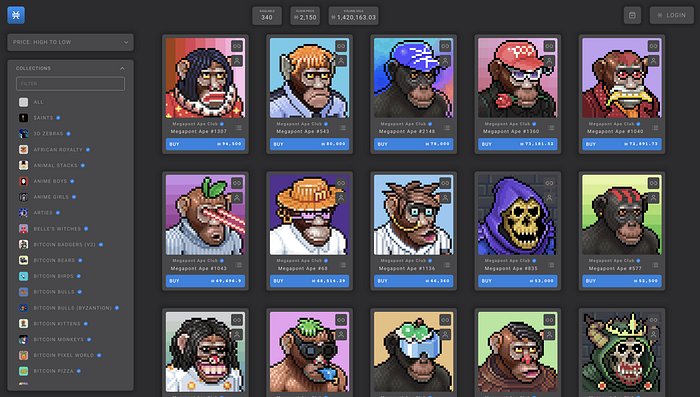


6. Stacks dApp
Various use cases such as DeFi and NFT have emerged through Ethereum, the most active among existing chains. Following these cases, new projects suitable for the individuality of each chain on platforms such as Solana / Binance Smart Chain / Polygon / Luna have been introduced.
In addition, various DApps are on their way in Stacks by taking advantage of the high connection with Bitcoin, thereby triggering the start of the ecosystem growth.
6.1. Hiro Web Wallet
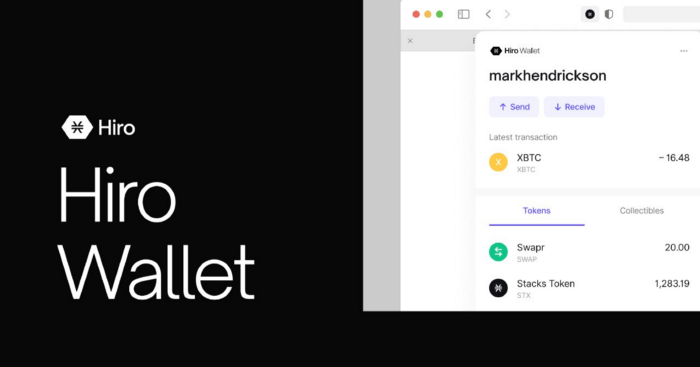
The Hiro Web Wallet is the most basic tool to use the Stacks DApp. It plays the same role as the Ethereum representative wallet, commonly known as Metamask, within the Stacks ecosystem. Hiro is currently leading development, working on building developer tools within the Stacks ecosystem.
6.2. CityCoins

CityCoin is a cryptocurrency project that can support their preferred city while earning Stacks and Bitcoin. Starting with Miamicoin (MIA) in Miami, NYCcoin (NYC) in New York City is currently active.
All Citycoins are launched through community decision-making. When activated, miners transfer STX through a proof-of-transfer (PoX) mining model, and the winner of each block acquires city coins in the corresponding city. Right now, 70% of STX used for mining is paid to users who have stacked CityCoins, and the remaining 30% is accumulated in the city’s wallet and used for the city budget.
Wow! In about 1/3 of the time the NYC Wallet has Surpassed the MIA Coin wallet balance which is still doing great!!! Imagine what would happen if @ericadamsfornyc got rid of the #NYCBitLicense 🤔 @mineCityCoins pic.twitter.com/DKWtTE3ho5
— CryptoGoatMan 🛡️ (@CryptoGoatManGo) November 29, 2021
In addition, the city of Miami recently announced that it would provide a Bitcoin wallet to the citizens of Miami and provide them with Bitcoins generated by stacking STX accumulated in the city wallet.

In addition, Vitalik, the creator of Ethereum, recently received a lot of attention by introducing CityCoin as a representative example of Crypto City on Twitter.
Crypto cities!https://t.co/mUdpYJSDq0
— vitalik.eth (@VitalikButerin) November 1, 2021
6.3. Arkadiko
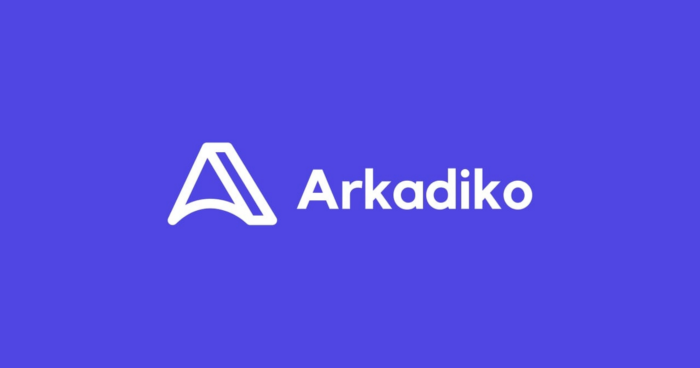
Arkadiko is the first Bitcoin DeFi protocol on Stacks and a Stacks-based asset-backed stablecoin project. Arkadiko is also called “Self-Repaying Loans” because by using PoX of Stacks, it is possible to earn higher profits than service fees with yields generated from collateralized assets.
Its core products include USDA stablecoin and Arkadiko Swap through loans. Users can provide liquidity to the Arkadiko Swap and receive the governance token DIKO as a reward. Acquired DIKO can be used for decision-making in Arkadiko DAO, which is currently being actively conducted through the community.
In particular, Arkadiko boasts a clean UI and friendly UX for users, and achieved $30 million TVL in just one day after its launch. As the Stacks ecosystem grows in the future, the USDA stablecoin will serve as an important building block for other projects.

6.4. ALEX

Alex is an open-source DeFi protocol based on Stacks modeled after the traditional financial markets. Alex wants to harness trillions of dollars of liquidity, power and security of Bitcoin through Stacks.
Currently, an active testnet is being conducted for users around the world, and the mainnet is expected to be launched in January this year. The key features include:
- Interest income through Bitcoin lending
- Leverage through Bitcoin Long/Short Positions
- Decentralized Exchange (DEX) for Token Trading
- Launchpad for launching new projects
Alex is preparing and developing the product based on the team’s solid experience in the traditional financial sector. In particular, Alex’s new Collateral Rebalancing Pool (CRP) proposed to the DeFi ecosystem eliminates liquidation risks, and the Fixed-Yield Token Pool borrows the concept of Zero-Coupon Bonds from traditional finance.
6.5. BlockSurvey

BlockSurvey is a project that came from Stacks Hackathon in July 2019, and is developing a “safer and more personal privacy” survey tool based on Stacks.
In particular, BlockSurvey wants to empower digital rights to users so they can own data by inheriting the spirit of “Can’t be evil” at the time of Blockstack (now Stacks). BlockSurvey uses decentralized ID (DID) for accounts and Gaia decentralized storage for data storage. However, since it is also not owned by BlockSurvey, it addresses censorship, privacy, security, and ownership issues.
6.6. StackSwap
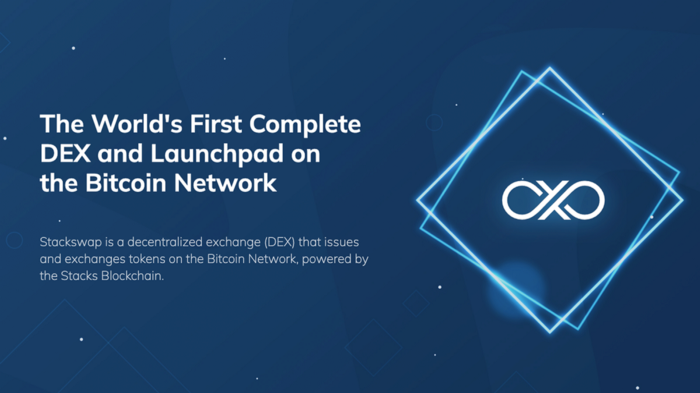
Stackswap is a Decentralized Exchange (DEX) based on Stacks. Currently, you can participate in Stacks-based SIP-010 token trading, liquidity provision, and yield farming through StackSwap.
In addition, the token launchpad function allows you to issue your own SIP-010, and provides PoXL mining, NFT management, and AI-based market prediction.
6.7. NFT Marketplace
Recently, the Bitcoin NFT culture in the Stacks community has been established, and the secondary market for trading it is also very hot. Starting with StacksArt, the first NFT marketplace based on Stacks, loved by most NFT enthusiasts, various marketplaces such as STN NFT and Byzantion have been launched.
- STX NFT — https://stxnft.com
- Byzantion — https://byzantion.xyz
- StacksArt — https://www.stacksart.com
You can see the various NFT collections that have been released so far through the above marketplace link.
6.8. Moonray

Moonray is a Bitcoin-based metaverse powered by Stacks and a next-generation action-RPG game. It boasts intense battles, high-quality video and soundtrack, and wants to implement a game economy through NFT trading.
Currently, Moonray is registered on the STEAM store and is expected to launch in the first quarter of 2022. You can check out the actual gameplay video powered by Unreal Engine in the video below.
6.9. Ryder

Ryder is a wearable cryptocurrency hardware wallet for storing digital identities and cryptocurrencies. Ryder is designed to interact with dApps without the need to keep separate passwords or private keys for encrypted IDs.
In addition to the above projects, continuous efforts are being made to attract various DApps within the Stacks ecosystem. If you are interested in participating in the Stacks ecosystem, you can participate in the Stacks Accelerator or the Stacks Foundation Grant Program.
7. Bitcoin Yield Using PoX
The biggest advantage that Stacks-based DApps can enjoy is that they have high access to pure Bitcoin. In particular, if you take full advantage of the PoX mechanism, you can continue to bring the value of Bitcoin into the app.

Since the launch of the Stacks 2.0 mainnet in February 2021, there has been an inflow of approximately 1,400 BTC into the Stacks network, All of which have been distributed to actual network participants, such as users who participated in stacking, stacking through Miami Wallet, and stacking through the Arkadiko Vault.
With the implementation of Ultra Mega Super Stacks 2.1 upgrade expected this year, it is expected that more Bitcoin value will flow into the Stacks ecosystem along with more flexible Stacks chain mining and stacking infrastructure improvements.
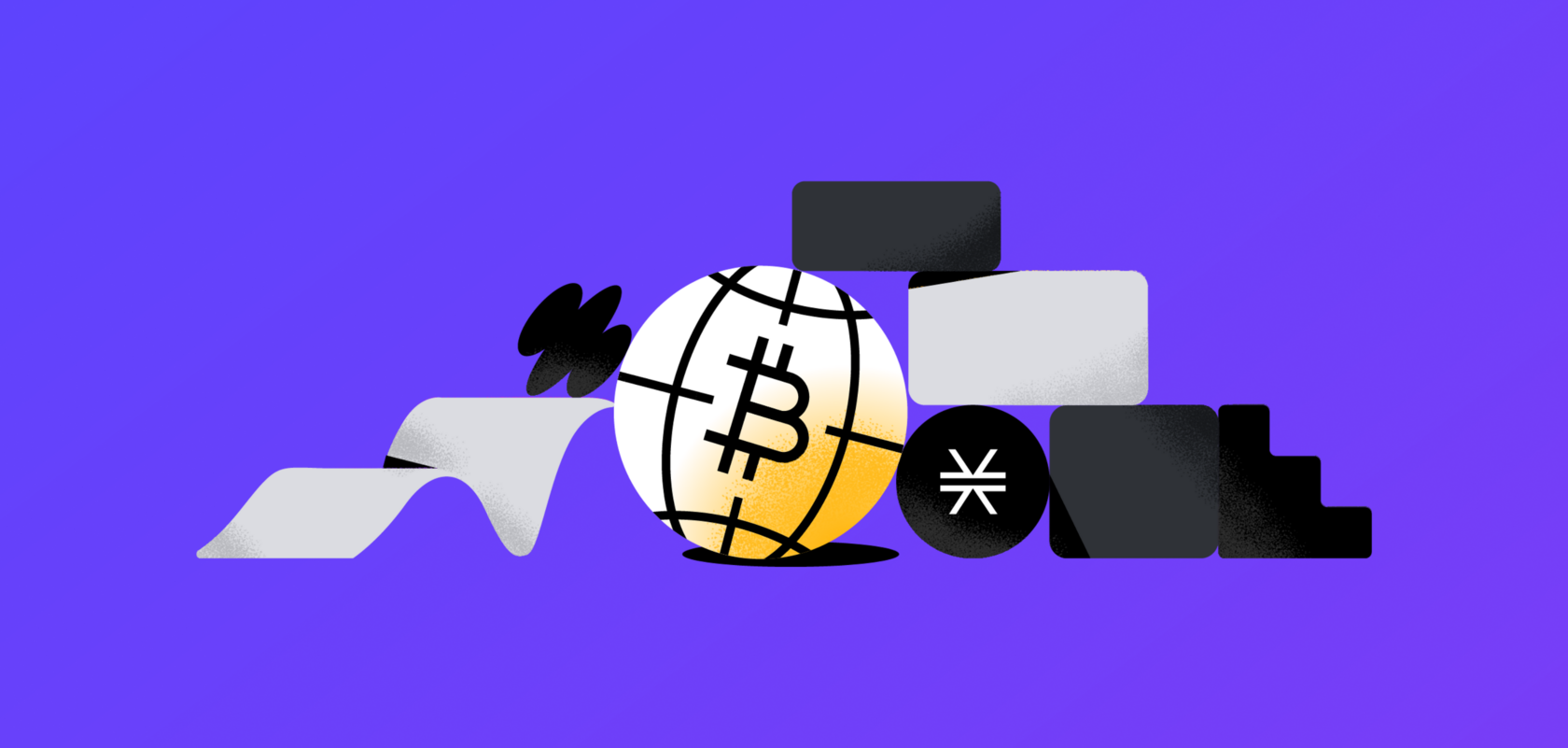
8. Decentralized entities contributing to the ecosystem
Since the time of Blockstack, Stacks has been constantly making efforts to realize decentralization. Although the first SEC-approved token sale in the United States was an exceptional case in the crypto industry, STX tokens were regarded as securities according to the Howey test of the US Supreme Court.
The most important consideration in the Howey test was “Can Blockstack PBC or a third party play a business role that could affect the potential returns of STX token holders?” Accordingly, with the launch of the mainnet, Stacks switched its position to an ecosystem participant with the name of Hiro PBC so that the entity called Blockstack PBC would no longer be involved in blockchain operation. Currently, Hiro is focused on providing developer tools within the Stacks ecosystem.
In addition, the Blockstack PBC team has been decentralized worldwide with the launch of the mainnet, helping the ecosystem to grow in the form of the Stacks Foundation, Daemon Technology, Secret Key Labs, Freehold, and New Internet Labs. In addition, each country is supporting autonomous growth through the foundation’s chapter program.
As such, a 1-U report was filed with the SEC proving that Stacks was no longer considered a U.S. security, and in January 2021, Hiro PBC ended its final annual reporting obligations under Reg A. In fact, the STX token, the fuel in the Stacks ecosystem, is no longer considered a US security type by being listed on the US exchange.
“Bitcoin has been gaining popularity as a store value as digital gold. But with the combination with Stacks, it can actually also become the base for smart contracts. It unlocks the $1 trillion market that is already available on Bitcoin and provides this critical missing layer of smart contract.” — Muneeb Ali, Co-Founder of Stacks & CEO of Hiro Systems
